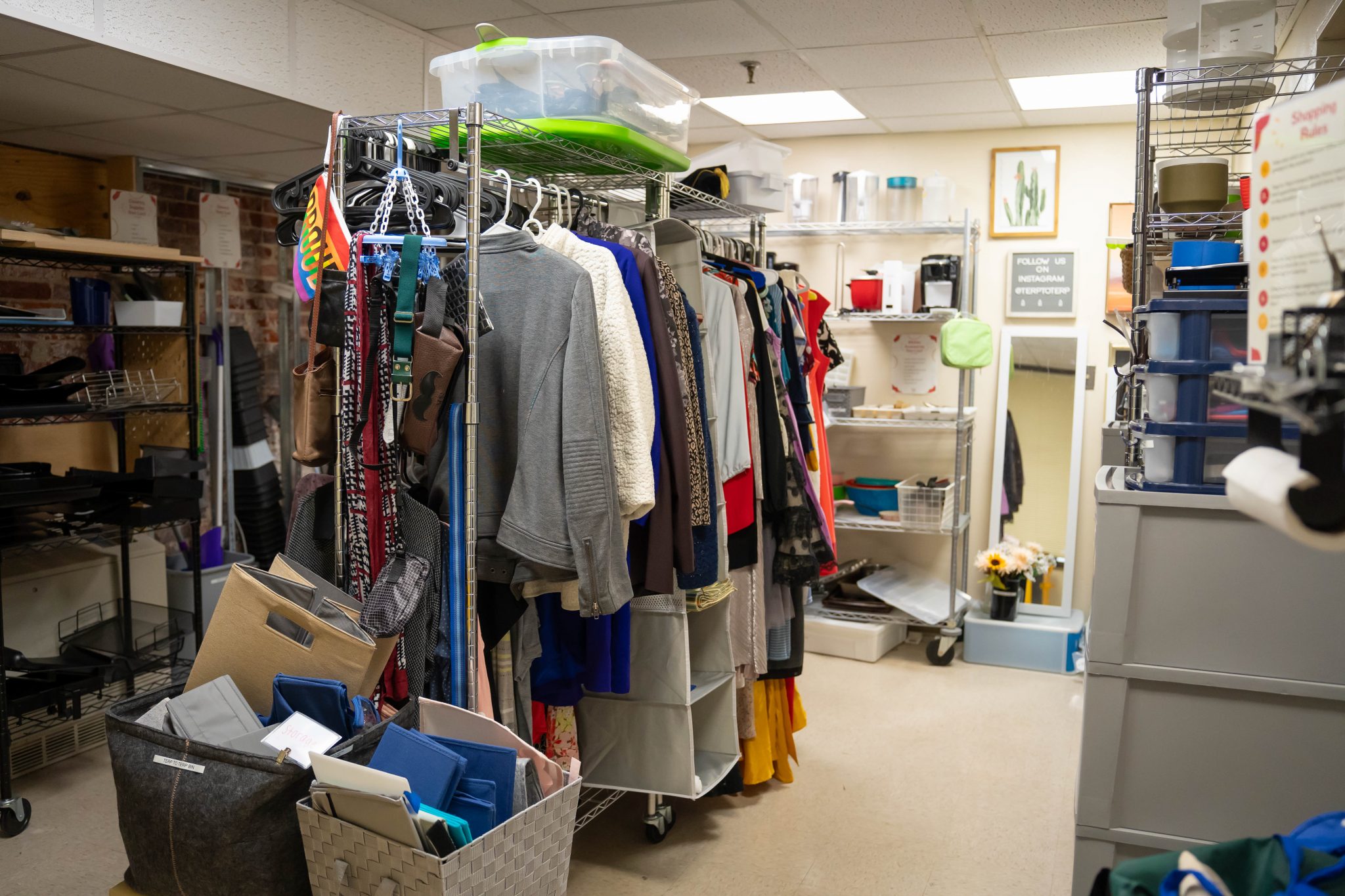More than 100 students gathered near Harford Hall’s service center Friday for the opening of a free clothing shop held by the University of Maryland’s campus reuse store — Terp to Terp.
Terp to Terp, located on the ground floor of Harford Hall, provides unused and gently used donated items for students such as school supplies, kitchen appliances and clothing. While the program hosted two open shops — appointment-free outdoor displays of the store’s clothes — last year, the store hopes Friday’s opening is the first of a monthly project this academic year.
Terp to Terp student manager Shannon Sweeney emphasized how affordable clothing is a common problem for students — an issue that Terp to Terp hopes to address with sustainability.
“Clothing waste is a huge issue,” Sweeney, a senior international business and marketing major, said. “Seeing the clothes that we get donated go back into the hands of students is great.”
[UMD students rally in support of Campus Village Shoppes]
Terp to Terp has donation bins by service desks in dorms on campus as well as a collection bin at the Campus Pantry.
Many of the store’s donations come from this university’s staff members, according to Lisa Alexander, the resident life coordinator for sustainability.
Currently, some clothes at Terp to Terp are packed away due to the store’s limited size. The open shop is an effort to display a large amount of clothes, Alexander said.
The open shops have made clothes more accessible for students, Sweeney added.
Outside of these open shops, students are able to visit the store through an appointment made by emailing terptoterp@umd.edu.
Terp to Terp uses an appointment-based system for privacy, Alexander said.
[Various parts stolen from 8 vehicles in College Park this week]
Several student attendees at Friday’s opening praised the open shop because of its affordability.
Senior cell biology and genetics major Deziree Bradford Yancey said she attended the open shop because shopping for clothes can be expensive.
“Even at this point, thrifting isn’t cheap,” Yancey said. “It’s [about] finding clothes where I can.”
Other students, like freshman biochemistry major Adaora Eziemefe, cited the store’s environmental benefits as a driving factor for shopping.
Eziemefe said she liked the open shop because of its sustainability. Buying used clothes is a way to recycle and prevent the purchase of new items, Eziemefe added.
Since the store opened in 2021, Terp to Terp has diverted more than 18,500 pounds from landfills and distributed more than 8,200 pounds of supplies to students. The store’s goal aligns with the university’s 75 percent waste minimization goal.
“Just having the resource of clothing for free is something that you don’t see very often,” Sweeney said. “It has a huge impact.”



